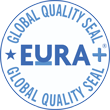
Dubai downtown in the evening, luxury modern buildings in bright yellow sunset light, futuristic cityscape, expensive life in UAE
The UAE introduced ESR in April 2019. Its goal is to ensure UAE companies maintain a sufficient economic presence in the UAE, in line with the global standard set by the Organisation for Economic Cooperation and Development (OECD) and its Forum on Harmful Tax Practices (FHTP).
Such standards were a prerequisite for removal from the EU’s blacklist of ‘non-cooperative jurisdictions for tax purposes’ and necessary to preserve the UAE’s credentials as a reputable place to carry out international business.
Here we outline what you need to do to comply, and how to go about it.
1. First steps
The process for determining whether you fall within the scope of ESR, and the steps you need to take, are as follows:
- If you, as a licence holder, have a trade or commercial licence or permit issued by any UAE regulatory authority, whether mainland or free zone, you will need to submit a notification to the regulatory authority by the submission deadline date.
- The 12-month period of reporting starts from incorporation or renewal date in 2019 and runs for a year, and you must file a notification within 3 months of the end of the reporting period, and any ESR report within 12 months.
- In order to submit the Economic Substance Notification you need to establish whether your company falls within the applicable business sectors.
- ESR applies only to:
- Banking
- Insurance
- Investment fund management
- Headquarters businesses
- Intellectual property (IP) businesses
- Distribution & service centre businesses
- Holding companies
- Lease-finance
- Shipping
- If the licence holder earns an income from any of the relevant activities within the applicable relevant activity, you need to submit a notification and ultimately an ESR report. If you fall outside these sectors, ESR itself is not applicable, but you must still submit a notification to the regulatory authority to that effect by the submission deadline date.
- If the UAE federal government or an Emirate government holds at least 51% of an entity directly or indirectly, you’re exempt from ESR. If not, and the licence holder earned an income from any of the relevant activities in the specific reportable period, you will need to file an Economic Substance Report within 12 months of the end of the reportable period.
- Companies under liquidation are still required to notify if they had ESR during the reporting period.
2. What are the economic substance tests?
If an organisation comes under the remit of Economic Substance, as of 30 April 2019 it is required to meet the economic substance tests to comply.
If it conducts relevant Core Income-Generating Activity (CIGA) in the UAE (in other words, if it earned income in one of the above-mentioned sectors in the reportable period), to satisfy Economic Substance rules, it must;
- Be directed and managed in the UAE
- Demonstrate an adequate number of full-time employees (FTEs) in the UAE for each CIGA
- Incur adequate operating expenditure in the UAE
- Be able to prove adequate physical assets in the UAE
3. What do you need to do next?
i) All licence holders of a commercial or trade permit in mainland or free zone jurisdictions must file a notification – failure to do so will result in penalties and entities will be deemed not to have met the requirements of ESR. Regulatory authorities are under an obligation to ensure that all companies that should file ESR reports do so, and this is the only way such authorities will know whether a company that should have filed has done so.
Authorities will continue to request notifications, even if you are demonstrably unaffected by ESR. This is also true of entities that have not conducted the relevant activity during the given reporting period. If a licensee does not conduct relevant activity during a financial period, they will not be penalised for not notifying, but the company will still be checked to see if it has notified, because a regulatory authority can’t risk the severe financial penalties of companies that should have notified but failed to do so.
ii) Keep records live and up-to-date . Authorities have six years to come back to you, with 2019 as the first year. As a result, you’ll be required to demonstrate exactly what was happening in 2019 until 2024.
iii) Make sure you document outsourcing agreements between clients. If a company is relying on services as an outsource agreement, review your documentation meticulously, so there is evidence that it’s clearly documented as an outsource agreement. You also need to make sure, and demonstrate, that the company doesn’t relinquish control or oversight of those outsource agreements, because if they are to be valid, an entity needs to keep control of (rather than delegate) those agreements.
In addition, if two group companies use the same FTE for outsourcing, he or she will be counted as 0.5 FTEs each, to prevent any double-counting. This obviously has an impact on any subsequent test of adequate UAE resources.
iv) Conduct and document directors’ meetings in the UAE. There is currently little evidence of adherence to this requirement, which is likely to lead to non-compliance. Meetings are still often conducted at holding company HQs, wherever in the world they may be, compounded by the fact that there is little necessary documentation of such meetings taking place. In addition, it’s clear that valid meetings are taking place in the UAE in compliance with the requirements, but many aren’t producing the necessary documentation to prove that. Such documentation needs to be kept in the UAE.
v) Keep in mind it’s important that records of directors’ meetings and the directional management of the company in 2019, the first reporting period, are kept. No relaxation of any requirements for directors to attend in person under the current travel restrictions in place during the Covid-19 pandemic in 2020 will have any exculpatory bearing on what is required for the 2019 reporting period.
vi) Review and revamp your processes for calling and documenting meetings. How to satisfy the requirement for an ‘adequate’ number of meetings is unclear. In some cases, an AGM might be adequate, but it’s equally possible that in others, quarterly budgets cannot be signed off without a directors’ meeting. Some businesses might need a board meeting every time a contract is entered into.
If you’re not currently satisfying those requirements in 2020, you’ll need to make sure there is a process to enable that, and ensure all documentation is prepared and kept in the right place.
No magic test
It’s clear from the prolific use of words such as ‘adequate’ and ‘sufficient’ that there is no magic, objective test with which to establish with certainty what you are obliged to do and what you are not. Many licence holders will, however, be able to look at their own business and ask themselves if, for example, you can run your business from the UAE with the resources and assets that you have in the UAE.
If it doesn’t look reasonable to you, it’s possible that it may look unreasonable to the UAE authorities, too. If in doubt, consider seeking further advice.





